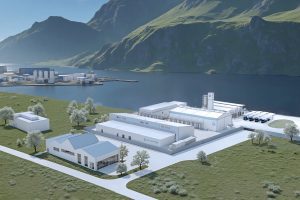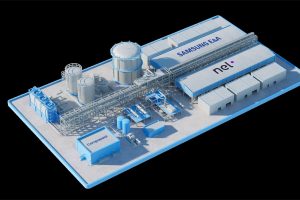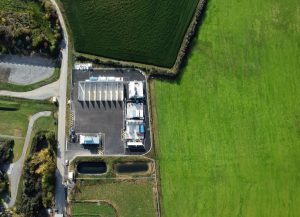Led by Dr. Rüdiger Deike, professor of metallurgy and forming technology at UDE, the project team is pursuing an approach to hydrogen transport whose cycle would look as follows:
At a location with high solar radiation and readily available water resources, photovoltaic systems supply electrical energy, which is used to split water into hydrogen and oxygen via electrolysis. All that is needed is a subsequent chemical reaction to reduce iron ore (iron oxide) to obtain iron – which is shipped as mini briquettes or pellets without any environmental risk. At the destination, the reverse reaction is initiated to obtain hydrogen and iron oxide again.
The engineers aim to identify suitable iron alloys that can undergo the chemical reactions as often as possible without loss. “On that basis, we want to develop the most efficient combination consisting of the best material systems and the process technology tailored to them,” Dr. Deike explains.
The German Federal Ministry of Education and Research (BMBF) is funding the project for three years with a total of €1.3 million as part of the ‘Hydrogen Republic of Germany’ ideas competition. Besides the UDE engineers, the Clausthal University of Technology and the Leibniz Institute for Materials-Oriented Technologies (IWT) in Bremen are also involved. Associated partners are thyssenkrupp Steel Europe AG and SMS group GmbH.






